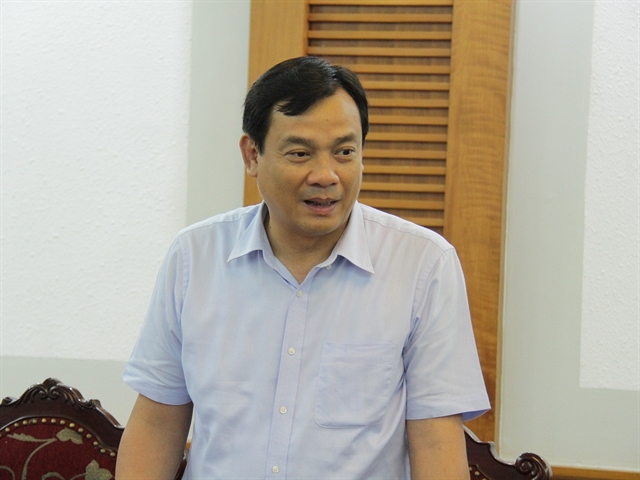.jfif) Opinion
Opinion


|
| Nguyễn Trùng Khánh . — Photo bvhttdl.gov.vn |
Nguyễn Trùng Khánh, chairman of the Việt Nam National Administration of Tourism, talks to Nhân dân (People) newspaper on training a quality workforce for the tourism industry – one of Việt Nam's most important economic sectors.
What is the State’s responsibility in ensuring the tourism industry has enough skilled workers to cater to the demand of its growth?
Developing the tourism workforce has become an urgent task to help the country develop now and in the future. Of course, improving the workforce requires the involvement of public and private agencies nationwide.
Regarding the State's responsibility, on September 29, 2011, the Ministry of Culture, Sports and Tourism issued a decision (No.3066/QĐ) on the development of human resources for the tourism industry until 2020. The document emphasises the need to establish tourism training schools and on-the-job training in tourism companies. The document says some training can also be conducted online.
The document also noted the importance of mobilising social resources for training, particularly in foreign languages.
The Ministry of Culture, Sports and Tourism has already developed its "Proposal on Tourism Training Network Development" to meet rapidly expanding demand in the domain of human resource development by 2020.
The Ministry of Culture, Sports and Tourism also submitted to the Ministry of Labour, Invalids and Social Affairs its "Proposal on the National Standards towards Restaurants, Catering, Tourist Guides, Tourism Management and Tour Agents".
Under the plan, the Ministry of Culture, Sports and Tourism is focusing its efforts on the implementation of the "Proposal on Training Senior Tourism Human Resources" in line with an agreement signed by all ASEAN members that lasts until 2035.
In the context of the Fourth Industrial Revolution, what should be Việt Nam's priorities in its investment in worker training for the tourism industry?
Industry 4.0 has already changed our tourism development strategy, particularly in the area of worker training, given the increasing popularity of virtual classes and the large amount of information available online. Teaching soft skills has been described as the biggest challenge for our tourism sector.
A proposal on the application of ICT in the tourism industry for 2018-20 period was approved by the Prime Minister, and on November 30, 2018 he also issued a decision detailing a strategy to train tourism staff in IT technology.
The Government has also instructed the Ministry of Education and Training as well as the Ministry of Labour, Invalids and Social Affairs to include IT training in all its tourism courses.
The culture ministry has also developed a training strategy that highlights the role of businesses. The ministry is also working with relevant agencies to develop an online open training portal, with the aim of providing a flexible option that is less time-consuming and less costly for those in the tourism industry looking to improve their skills and get a certificate.
Do you think that we need a new mechanism to attract more talented people to work in the tourism sector?
On October 20, 2017, the General Department of Training and Education and the Ministry of Education and Training jointly issued an official letter on a special mechanism regarding training courses for the sector. It laid out guidelines for how training facilities should work with tourism enterprises to organise courses – many are carrying out this quite well.
On the other hand, many businesses are 'placing orders' at the reputable tourism worker training centres to ensure they would get enough staff in the future.
Some have said that the tourism businesses should set up training centres or even full-fledged schools themselves and tax cuts would be a great way to encourage these activities, but this would need approval from the finance ministry.
The Ministry of Culture, Sports and Tourism and the Ministry of Education and Training have also proposed a co-ordination mechanism so that resource and materials could be shared in training tourism work force. — VNS




